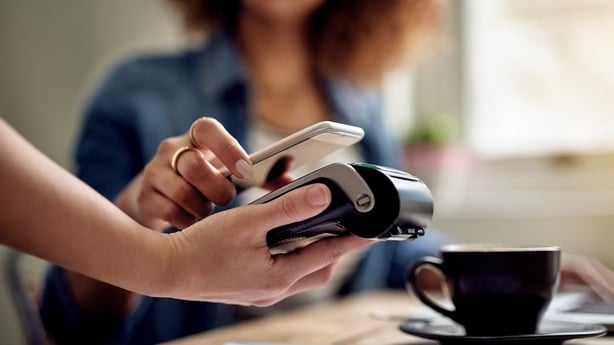Richard Branson credits it with "driving a revolution". Al Gore counts himself a "big fan", and Bill Gates calls it a "techno tour de force". But what is the cryptocurrency phenomenon – and more importantly, how can it help you and your business to make and save money?
In five years' time, I believe cash visa cards and debit cards will be gone – transferring "money" will be done through your mobile phone, online or even a chip in your hand/wrist. So, if this turns out to be the case, cryptocurrencies could play a huge part in money transfers.
How it works
We’ll start with the basics. Cryptocurrencies such as Bitcoin, Dash, Ether and their ilk are electronic online currencies that exist solely in the digital world. They can be used online, and increasingly in the real world, to buy and sell goods and services.
They are a relatively new, entirely decentralised phenomenon. The concept was first proposed just six weeks after Lehmann Brothers collapsed in 2008. Central to their popularity is the idea that they don’t rely on traditional banks as intermediaries – an attractive prospect to those badly burned by the financial crash. This is a system based on ownership, not owing.

There are two types of cryptocurrency:
- Deflationary currencies, such as Bitcoin, in which the total number of digital "coins" in existence is limited.
- Inflationary currencies, such as Ripple, that allow for additional monies to be created.
Learning from past mistakes, cryptocurrencies are designed to be a self-stabilising economy, built on the knowledge that if something grows too fast, it runs the risk of crashing; but if it grows too slowly, the economy will grind to a halt.
What’s all the fuss about?
"Control of a currency is one of the most powerful tools a government wields; ask anybody in Ireland, Portugal, Greece, or Cyprus who lived through those countries’ recent financial crises. Bitcoin promises to take at least some of that power away from governments and hand it to people." – Paul Vigna, markets columnist for the Wall Street Journal.
You may have read the recent headlines about the $5 Bitcoin investment in 2010 being worth $4m in today’s money - almost enough to build a time machine to go back and invest everything but your grandmother’s wedding china. Cryptocurrency is big business, and it’s here to stay.
On 3rd January 2009, the bitcoin network came into existence with Satoshi Nakamoto mining the genesis block of 50 bitcoins. 9 days later the first transaction was made by Hal Finney when he downloaded the bitcoin software and received 10 bitcoins from Nakamoto.
In 2013, Bitcoin was the fastest-growing currency market in the world; by the end of May of this year, cryptocurrencies had a combined worth of over $81bn – not bad for tender that exists without the help (or hindrance!) of any government or bank.
Cryptocurrencies are not backed by any countries, nor are they issued by any central authority. So while this brings with it a certain aura of risk, it also means there is undeniable freedom to their potential applications that are unmatched by any other, more established, currencies in the world.

Is it safe?
Cryptocurrencies use cryptographic techniques – for example, timestamping for verification – to ensure their system is secure. All completed transactions are stored in a public ledger, within which the "coin" owners’ identities are encrypted. Bitcoin, for example, calls this ledger a "blockchain". This blockchain acts as Bitcoin’s security: by recording every transaction, it prevents people from spending money more than once.
How can it help my business?
Imagine you run a small, artisan business in the west of Ireland. You’ve done your research and know that your high-end, locally produced, product is sought after by consumers in Australia, but you – and your customer base – would find the traditional costs associated with these transactions to be prohibitive.
Cryptocurrencies are global by their very nature, so by adopting their use, you could expand your market far beyond its current reach. Without the usual costs and inconvenience of delays associated with banks and third-party intermediaries, such as PayPal, the transaction is as direct and immediate as if the customer were standing in front of you and paying with cash. This removes the middle man, serving to empower both customer and seller.
As above, security is another strength of this type of currency. Loss of earnings due to fraud or theft is a huge danger for any business; credit card theft alone loses merchants an average of $190bn each year! However, cryptocurrencies are protected by blockchains, and by the very immediacy of the peer-to-peer nature of the transactions for which they are used; there is far less associated risk of identity theft, for example.
Perhaps most importantly, as with any cutting-edge technology, adopting cryptocurrency early on will give you an advantage over competitors who continue to rely on traditional financial methods. Giants and market leaders like Tesla, Virgin Galactic and the Apple App Store are already leading the way by accepting cryptocurrency as payment.
In my opinion, it isn’t going anywhere – so if you haven’t seen it on offer in your field already, now is your chance to give your business the edge.

Benefits:
Speed
Cryptocurrencies, such as Bitcoin, allow for immediate transfers from anyone, anywhere in the world, to anyone else, anywhere else. There’s no need to allow a few days for a transfer from one bank to another to clear, which saves valuable time. And time, as we know, is money.
Convenience
Think about it: everything from bills to banking to buying groceries can now be conducted online – so why not make money itself a paperless asset? The need for cards and cash is negated, as cryptocurrencies can be spent via apps – such as Festy, a new wristband that allows festival and bar-goers to pay for food and drinks using Dash. Because it’s wearable, the band is more secure than a wallet; and it gets rid of the need to queue for cash at ATMs. And the best part? It’s designed by Irish discount gift card platform, BitCart.
You can buy cryptocurrency with "real" money, or buy real things with cryptocurrency – you have the freedom to make the choice.
Privacy
There is a level of associated anonymity to cryptocurrencies that cannot be matched by traditional bank accounts or credit cards. While there is always a record of the transactions for which each "coin" is used, your transactions themselves are pseudonymous, connecting to a fake name, or "address". Unless someone can connect this address to your real name – which would take a lot of work, back-tracking through multiple transactions in order to create a link between them and one address – your transactions are private.
Affordability
With none of the minimum monthly deposit, stamp duty or transaction fees associated with traditional bank accounts, cryptocurrencies are simply a cheaper option. While exchange fees vary depending on the currency, they remain significantly lower than traditional fees – and some, such as Dash, often incur no merchant fees on purchases made.
User discounts
Retailers and service providers are beginning to partner with cryptocurrencies to offer lower prices to consumers. Dash, for example, has recently aligned with BitCart, enabling users to avail of up to 20% off Amazon purchases, with Hotels.com discounts also in the pipeline. In some countries, people can even use Dash and Bitcoin to top up mobile phones and recharge debit cards.

How do I get started?
You can find out how to buy Bitcoin in Ireland from BitEx.ie, or by visiting their store on Upper Abbey Street in Dublin 1.
Of course, it’s not all sunshine and smiles – and there are plenty of voices out there warning that what goes up must come down. How many investors cashed in December 2017 when Bitcoin reached an amazing €19,783.06? Today it is worth € 8,890.31…
Dig into cryptocurrencies at all, and you’ll find comparisons to the Dutch tulip mania of the 17th century, and the phrase, "it never goes down – until it does".
There are some safeguards you can practise:
Only invest what you can conceivably afford to lose. Don’t go cashing in your house deposit for cryptocurrency in the hope that you’ll earn enough in a year to avoid taking out a mortgage – be careful.
Seek out established currencies. Bitcoin, the best-known and most valuable cryptocurrency, is still considered a safe bet; but the value of Ether has risen 4,500% since the start of 2017; and Dash, one of the fastest-growing currencies, has just recently launched its own Apple Store-approved wallet app and is moving from strength to strength.
It can be tempting to try to seek out the next up-and-coming currency and get in at the beginning, but there’s a certain increased level of security with more established currencies.
Stay informed. Although secure, cryptocurrency is not infallible; a multi-million dollar heist last year scared the community, although this drop in confidence has certainly abated, judging by this year’s increases.
Nevertheless, it’s always wise to keep an eye on the news and stay aware of any changes or rumblings. As of August 1st, those with Bitcoin held on certain platforms received the equivalent in a new cryptocurrency called Bitcoin Cash.
However, when Coinbase, the largest platform, rejected it, thousands of holders withdrew their Bitcoin in order to join another platform and receive the new currency. In such an emerging market, changes like this are not uncommon – so keep your eyes open!
So, there you have it: cryptocurrencies in a nutshell. Sound as a pound? The jury is still out.
For more financial information click on John Lowe's profile above or on his website.

